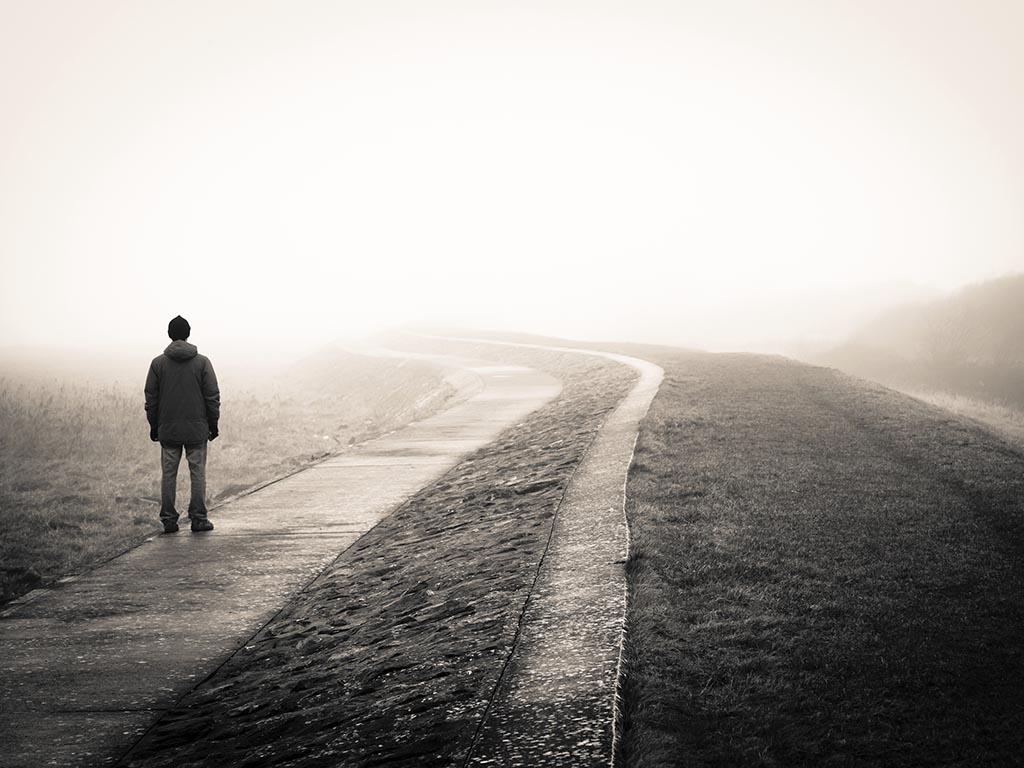
This week we welcome guest blogger, Erika Barber, who talks about settling into uncertainty after being diagnosed with obsessive-compulsive disorder. It is amazing how a diagnosis can bring us back to our grief. Erika lost her sister to suicide when she was a teen, and her father a couple short years ago. Erika is a board member for the Illinois Chapter of the American Foundation for Suicide Prevention (AFSP) and the author of Letters from a Friend: a Sibling’s Guide for Coping and Grief and Conversations of Courage: a caregiver-guided activity journal for the child of suicide loss. A huge, “Thank you” to Erika for sharing her story with us.
Settling Into Uncertainty
Recently, I was diagnosed with obsessive-compulsive disorder (OCD). To some degree, I’ve always been aware of my OCD tendencies and had little difficulty co-existing with them. I can easily recall childhood memories of the excessive worrying, the racing thoughts, the rehearsed regurgitation of past regrets and perceived mistakes…frantically checking and rechecking for validation of truths that could never be fully known and then the resulting and paralyzing anxiety that accompanied those realizations. Uncertainty.
The brain hates uncertainty. Not having “the” answer, a predictable path, a reliable expectation or resolution causes the brain to become uncomfortable…itchy…anxious.
In therapy, I was told, “Your brain is not your friend.” Maybe none of our brains are our friends.
Suicide loss survivors know something about this as well. Often times in the aftermath of suicide, survivor brains take on the role of interrogator, berating the survivor with questions like:
Why didn’t I see this coming?
Why was I blind to her illness…his struggles…the signs?
Why didn’t I research and learn more about that mental health condition?
Why didn’t I seek help for them from mental health professionals, family members or friends?
What if I had done XYZ differently….would my loved one still be alive?
Why? What if…?
I struggled with some of these same questions after my sister’s suicide and again, 32 years later, after my dad’s. Once diagnosed with OCD, I pondered yet another question: whether this same illness was a factor in their deaths.
As part of my treatment, I was introduced to a technique called Exposure and Response Prevention (ERP). ERP is a behavioral therapy approach found to be effective in treating OCD and other anxiety-related conditions. The basic premise of ERP seems irrational: by exposing yourself to the anxiety-provoking thoughts, images and situations while refraining from performing any related compulsions, in time…the anxiety lessens. The brain fundamentally habituates to the anxiety, causing a reduction in symptoms. Essentially, sitting in the company of anxiety and uncertainty without effort to control it…just allowing it to be…quiets the brain. And, for me, that’s exactly what happened. Within the course of my treatment, I noticed that the obsessive thoughts, the barrage of questions and their related anxiety were still present; my brain just didn’t react to them the same way. I became OK with not having all the answers to my questions…without knowing definitive endings to all my, “What ifs”.
In the depths of my struggles with OCD, I felt dire hopelessness—anticipating a future without relief or reprieve from the relentless grip of a severe mental health condition. The intense emotional pain offered me a glimpse of what my family members might have been combating when they ultimately ended their lives. Through my struggle, I’ve been gifted with a sense of compassion and an ability to forgive my sister and dad that I likely otherwise would not have realized.
I will never know with any certainty whether my sister or my dad also battled with OCD or whether a proper diagnosis of OCD and an ERP treatment regimen could have saved them as I believe it saved me. I can never know if I could have said or done something differently that would have prevented my family members’ suicides. Those possibilities will lie forever dormant, unknown, unrealized. There is no more potential for the past.
What I do know for myself and with great assurance, is that my earned adoption of the ERP principle of “settling into uncertainty” has quieted both the irrational thoughts as someone living with OCD and the rational recurrent thoughts and questions asked by a survivor of suicide loss.
As counterintuitive as it seems, embracing the anxiety and the uncertainty has gradually led to a peaceful stillness, a calmness in the struggle, a reassurance that it is ok to not have all the answers.
The truth is—and always has been—there are relatively few certainties in life. Even before I lost two family members to suicide and even prior to my OCD diagnosis, there were no guarantees of the trajectories any of our lives would have taken. Growing up, I imagined my dad being a grandfather to my children and that my sister and I would take turns hosting holidays at each other’s homes. As it turns out, I have no kids or a dad and holidays are bittersweet, often spent in the company of other families…maybe families who still misguidedly assume a definite and predetermined future for their members.
There is safety in assumptions and predetermined certainties. Securing true assurance though is achieved in the embrace of being OK with the not knowing…with the unattainable reasons behind the whys…with the open-ended question that doesn’t have an answer or maybe has thousands of them.
Undoubtedly, it is far from easy to sit beside and coexist with uncertainty. But, maybe that’s a life lesson from which everyone could benefit and—for those who struggle with anxiety and for suicide loss survivors—what truly can liberate us from the guilt, from the regret…from ourselves and finally shine some light on our healing paths.




Erika, I am so glad you wrote this. I lost my eldest son at 28 and my wife of 40 years when she was 65, just 18 months ago. To see someone else that has lost two family members to suicide acknowledge and talk about it as it relates to their ongoing walk through life is very helpful to me. Although I attend local suicide help groups it is rare to find anyone that has suffered multiple deaths this way. I am sending this article onto my remaining son and hoping he too will find it somehow helpful. Thank you!
So thoughtful and heartfelt. Thank you for sharing Erika. You are a inspiration and light for so many people. I hope you can find peace.